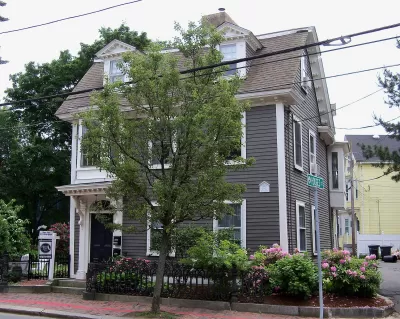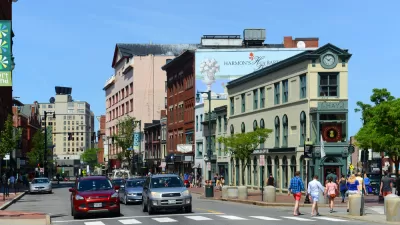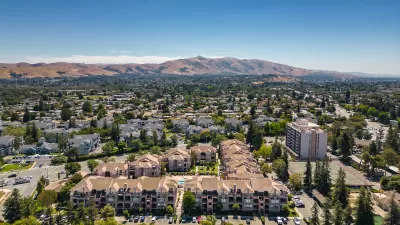Cities in the region want to increase flexibility for homeowners who want to build 'granny flats' on their property.

Accessory dwelling units, granny flats, in-law units—whatever you call them, the concept of building additional housing units on single-family lots has taken off across the country. Now cities in the Boston area, which have long restricted ADU construction, are "mulling so-called accessory dwelling units as one way to add housing without drastically altering the feel of neighborhoods," reports Andy Rosen. "A 2018 study by the free-market Pioneer Institute found that only 37 of 100 municipalities surrounding Boston allowed ADUs for rental to anyone other than a homeowner’s family or caregiver. And in many of those cities and towns, the rules were so strict that few people were building them."
"This spring, both Arlington and Salem passed measures to allow such units. Framingham and Barnstable, among others, are considering doing so, as well. Boston is expanding a similar 2019 program, and some candidates in the city’s mayor’s race are calling for even more permissive rules to encourage them." As Rosen writes, "[s]upporters say they are good tools to help older people and those on fixed incomes stay in their homes by converting unused space into income-producing property, while providing relatively low-cost rental stock."
The Boston program also aims to "bring unpermitted units into compliance and to ensure they meet safety standards." While "ADUs won’t come close to solving the region’s housing crunch on their own," more permissive zoning and "a thoughtful approach could house thousands of people across the region."
FULL STORY: For years, in-law apartments have been discouraged in Greater Boston. The housing shortage is changing that

Alabama: Trump Terminates Settlements for Black Communities Harmed By Raw Sewage
Trump deemed the landmark civil rights agreement “illegal DEI and environmental justice policy.”

Planetizen Federal Action Tracker
A weekly monitor of how Trump’s orders and actions are impacting planners and planning in America.

Why Should We Subsidize Public Transportation?
Many public transit agencies face financial stress due to rising costs, declining fare revenue, and declining subsidies. Transit advocates must provide a strong business case for increasing public transit funding.

Understanding Road Diets
An explainer from Momentum highlights the advantages of reducing vehicle lanes in favor of more bike, transit, and pedestrian infrastructure.

New California Law Regulates Warehouse Pollution
A new law tightens building and emissions regulations for large distribution warehouses to mitigate air pollution and traffic in surrounding communities.

Phoenix Announces Opening Date for Light Rail Extension
The South Central extension will connect South Phoenix to downtown and other major hubs starting on June 7.
Urban Design for Planners 1: Software Tools
This six-course series explores essential urban design concepts using open source software and equips planners with the tools they need to participate fully in the urban design process.
Planning for Universal Design
Learn the tools for implementing Universal Design in planning regulations.
Caltrans
Smith Gee Studio
Institute for Housing and Urban Development Studies (IHS)
City of Grandview
Harvard GSD Executive Education
Toledo-Lucas County Plan Commissions
Salt Lake City
NYU Wagner Graduate School of Public Service





























